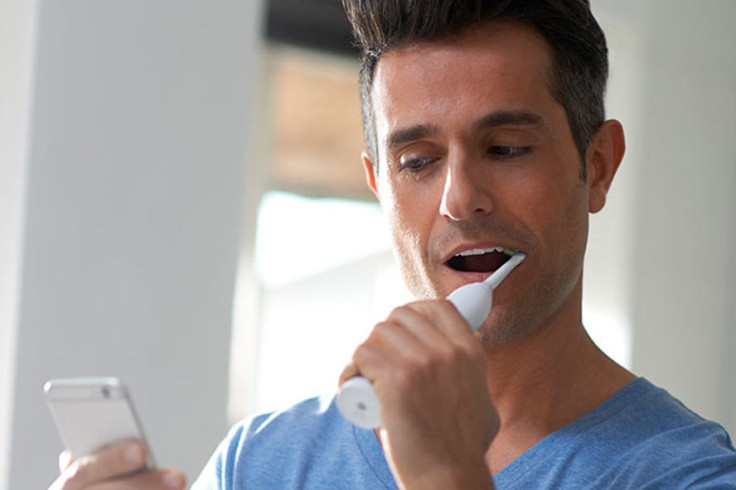Never floss again: Dyson goes dental with water jet toothbrush patent
Company files patent for toothbrush with built-in water water jets to blast away food.

After revolutionising the design of vacuum cleaners, hair-dryers and standing fans, Dyson could now be looking to conquer the dental hygiene market. The British tech company has filed patents for a new electric toothbrush with built-in water jets capable of blasting away food debris from between your teeth, potentially doing away with the need to floss entirely.
The toothbrush – or "dental cleaning appliance" as it is described in the patent – contains a small reservoir at the base of the brush head that can be filled with water and then pumped out in thin jets of water to dislodge matter from between teeth. According to the London Evening Standard, the toothbrush could also be used without the cleaning bristles as a high-powered water flosser.
The reservoir would contain enough water for multiple short bursts or three long ones and could be filled up from a tap. The patent also describes how other fluids could be pumped through the nozzle, likely toothpaste or mouthwash, with the toothbrush offering six variations of "manual jet" and "auto jet" modes. Much like rival electric toothbrushes, Dyson's would also feature an alert system to warn users when they are brushing too hard.
When set to auto mode, the toothbrush will rely on a motion sensor or camera capable of detecting when it is positioned between users teeth and fire water accordingly. However, it wouldn't be the only high-tech piece of oral technology as Philips Sonicare AirFloss, which is currently on the market, uses a system of air and water to dislodge bits of food and Oral-B's Genius electric toothbrush also uses a pressure sensor and an accompanying smartphone app to track the areas being brushed.
The Dyson's pivoting toothbrush head would rotate at 6,000 revolutions per minute (RPM), which is slower than the 8,800 typically offered by Oral-B's Pro Care line-up, although we imagine there will be some sort of Dyson magic involved that will make the difference negligible.
However, said magic is expected to come at a price: given that Dyson's vacuum cleaners sell for up to £500 and its Supersonic hair dryer costs £300, consumers can expect a similarly high price tag to adorn Dyson's first dental hygiene product. That's if it even makes it from the drawing board to factory floor.
© Copyright IBTimes 2025. All rights reserved.





















